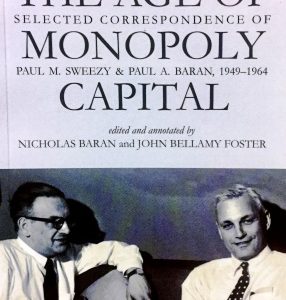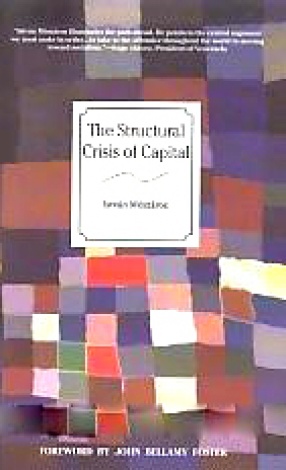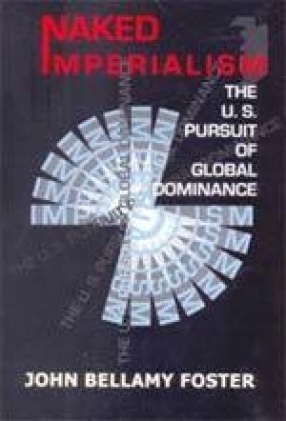
John Bellamy Foster

Showing all 7 books

Paul A. Baran and Paul M. Sweez were two of the leading Marxist economists of the twentieth century. Their seminal work, Monopoly Capital: An Essay on the American Economic and Social Order, published in 1966, two years after Baran's death, was in many respects the culmination of fifteen years of correspondence between the two, from 1949 to 1964. During those years, Baran, a professor of econimics at Stanford, and Sweezy, a former professor of economics at ...

Remember that metaphor about the frog that slowly cooks to death in the pot of increasingly warm water? Leftists have used it for years to describe how people can accept dwindling health care, fading job opportunities, eroding racial and gender equality—as long as the loss occurs gradually. Now, with Donald Trump having slouched off to Washington, most of the mainstream media are working overtime to convince us that we can still stand the heat. Leave it to ...



This volume examines the nature and prospects of the U.S. imperial project currently being given shape by war and occupation in the Middle East. Immanuel Wallerstein, Peter Gown, and other discuss the dynamics at work behind the “Waron Terrorism.†Their analyses locate recent developments within a longer historical arc, and set out the central questions for research and debate: Is U.S. unilateralist and militarism a sign of the increasing strength of the ...


During the Cold war years, mainstream commentators were quick to dismiss the idea that the United States was an imperialist power. Even when U.S. interventions led to the overthrow of popular governments, as in Iran, Guatemala, or the Congo, or wholesale war, as in Vietnam, this fiction remained intact. During the 1990s and especially since September 11, 2001, however, it has crumbled. Washington proclaimed the “war on terror†and invaded Afghanistan and ...
